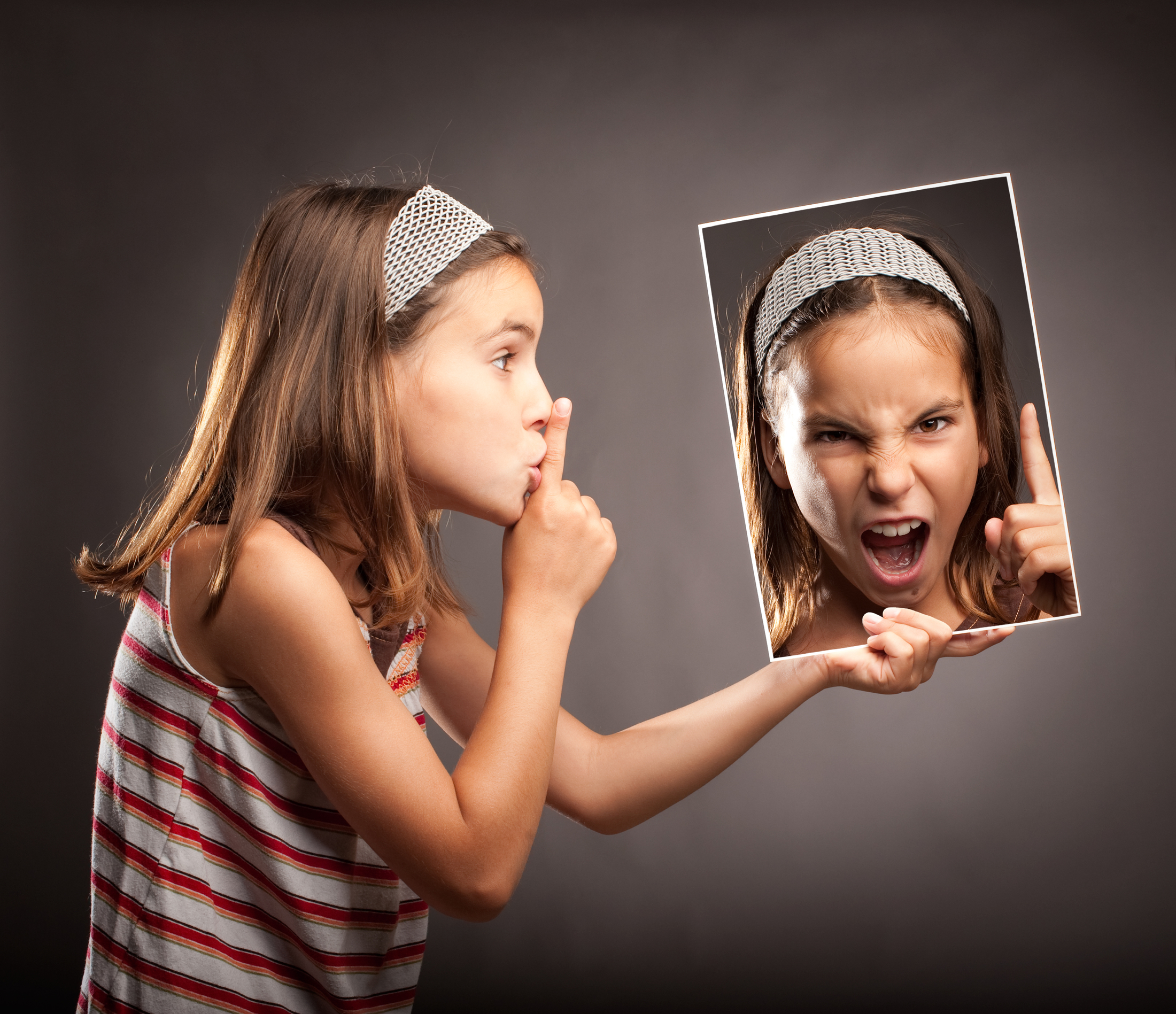Why do our brains freak us out with scary dreams?
为什么大脑要用噩梦来吓唬我们?
壹心理翻译社 ◎ 荣誉出品
原作 | Drew Dawson
翻译 | 春暖花开
校对 | 搬那度
今天是翻译社第2次尝试【英文原文—中文译文对照】的新形式。上次首次中英对照的操作,大家的反馈好坏参半。我们想继续尝试一两次、也继续收集各位读者朋友的反馈。点赞 or 想吐槽?请通过下方评论区或是官网站内信继续畅所欲言,感激不尽!
导读:这篇简短+通俗易懂的科普小文,不仅适合对「梦境」「睡眠」感兴趣的心理知识爱好者,也适合对「噩梦」感到好奇又有些怕怕的小朋友。家长们可以考虑读给孩子们听哦~
Getting a fright from a dream is very normal. But our brains don't have a secret plan to freak us out with nightmares.
被噩梦吓到实属平常,但这并不是大脑蓄意为之。
In the olden days, many people believed dreams were a window to another world. People lived two inseparable lives: on_e in a waking world and the other in a dream world.
古时候,很多人认为梦是通往另一个世界的窗口,人有两个生命,一个活在清醒的世界,一个活在梦里,二者密不可分。
They believed the dream world contained a mixture of the past and the future, gods and goddesses, and helped people find purpose with their lives. These dreams often revealed new people and ideas, which explains why some people found them scary. Others saw them as a sign or a prophesy from the gods.
古人相信,过去与未来在梦中交汇,诸神与众仙在梦中齐聚,梦帮人找到生命的意义。梦中常常出现新人物、新念头,因此让一些人觉得可怕。也有人把梦看作一种征兆,或是来自神明的预言。

When scientists first studied dreams, around 200 years ago, they thought dreams were a special type of story that brains told themselves. Scientists thought it was a special language where ideas and emotions were explained using symbols and signs. Different parts of the brain would talk with other parts in this dream state.
大约200年前,科学家开始研究梦境,当时他们认为梦是大脑为自己编造的故事,是一种用符号和标记来解读思想与情感的特殊语言。大脑的不同部位会在梦境中互相交谈。
If your house was damaged, for example, it was supposed to represent the dreamer, and the brain was trying to tell you that you or your ego had been damaged. Dr. Sigmund Freud, seen by many as the founder of psychoanalysis, wrote a very famous book about dreams called The Interpretation of Dreams in 1900.
比方说,如果你梦见你的房子受到毁坏,那么房子代表你自己,这个梦其实是大脑想要告诉你,你本人或者你的自我(ego)受到了破坏。被公认为是精神分析鼻祖的弗洛伊德于1900年发表了一本关于梦的传世巨著,名为《梦的解析》。
About 100 years ago, people started to explain things more thoroughly using science and technology. This brought a different way of understanding why things happen. But it doesn't mean the way other people thought about dreams was necessarily wrong.
大约100年前,人们开始运用科技来更深入地解释事物,为了解一切事物的根本原因带来了全新的视角,但这并不意味着有关梦的其他观点就一定是错的。
There are two main types of sleep, according to scientists, and dreams occur during a stage called REM sleep (Rapid Eye Movement).
科学家发现,人的睡眠主要分为两种,其中一种称为快速眼动睡眠(REM sleep),梦都发生在睡眠的这一阶段。

REM sleep is when we are most likely to dream. It is called REM because people quickly flick their eyes back and forward while they sleep.
快速眼动睡眠是最容易做梦的时候,之所以称为快速眼动,是因为人们在睡觉时会迅速地转动眼珠。
If you watch cats or dogs sleeping, you will sometimes see their eyes moving and their paws twitching. This indicates they are in REM sleep and probably dreaming. But we don't really know what cats and dogs dream about because they can't tell us.
如果你观察过猫或狗的睡眠,有时你会看到它们的眼珠在转,或者爪子在动,这说明它们处于快速眼动睡眠状态,没准儿正在做梦,但我们不知道它们梦见的是什么,因为它们没法告诉我们。
The other main type of sleep is non-REM sleep, called deep sleep or Slow Wave Sleep (SWS). In this type, people sleep very deeply. But they don't typically report dreaming. If you try to wake them, they're often slow and confused.

除了快速眼动睡眠,另一种主要的睡眠形式是非快速眼动睡眠(non-REM sleep),又称深度睡眠、慢波睡眠(Slow Wave Sleep)。在这一阶段,人们睡得很沉,但是一般不会觉得自己做梦。如果在这个阶段喊醒他们,他们多半会行动迟缓,表情茫然。
For the last 50 years, some scientists believed that dreaming was the way brains decide what to keep and what to throw away each day. In a sense, it's like cleaning your room: your brain decides what you'll need to know and tosses the unimportant stuff into the bin.
过去50年,有些科学家相信,做梦是大脑每一天对其存储内容做出取舍的方式。在某种意义上就像是打扫房间:大脑把你需要知道的信息都留下,把不关紧要的内容都扔掉。
Scientists think young people find it harder to separate the waking and dreaming worlds and often confuse the two.
科学家认为,年轻人更难分辨清醒的世界和梦中的世界,常常将二者混为一谈。
Filmmakers have taken this confusion to the screen again and again over the years. There are many movies about how dreams can scare and confuse us.
多年来,电影工作者们不断地将这种混淆表现在大屏幕上,制作了很多关于我们被梦境惊吓、迷惑的电影。
As you can see, lots of people wonder why dreams are scary. The truth is that we don't know for sure.
不难看到,很多人都很好奇为什么梦境很恐怖,然而事实是我们还不是很清楚。
What we do know is that all people dream, and all people think dreams can be weird, scary and puzzling at times. We share the ability to dream with all warm-blooded animals, so it likely has an important function in keeping us healthy.
我们现在知道的是,所有人都做梦,而且所有人都认为有的梦很奇怪,很恐怖,很费解。做梦是所有温血动物共通的能力,人类也不例外,因此,维持健康很可能就是做梦的其中一个重要功能。
I suspect everyone tries to make sense of their dreams—even scientists. But we still can't see inside someone else's brain to see what they are dreaming about. And that's probably a good thing.
我想,每个人都想搞懂自己的梦,连科学家也包括在内。但我们仍然无法看穿别人的大脑,看看他们都梦见了什么。不过这恐怕是件好事!
作者简介:Drew Dawson,澳大利亚中央昆士兰大学(CQUniversity Australia),阿普尔顿研究所主任(Director, Appleton Institute)。
译者简介:春暖花开,壹心理翻译社 | 译员。热爱翻译,热爱心理学,热爱各种无用的知识,相信无用之用,方为大用。
© 本译文由壹心理翻译社译员与壹心理联合原创首发,文中内容不代表壹心理或译者立场。转载前需获得我方授权,请联系邮箱:derek@xinli001.com











模棱两可,欺瞒造作,有头无尾,浑水摸鱼。
说了半天废话
被吓得一惊一乍的看完,没看懂。哈哈